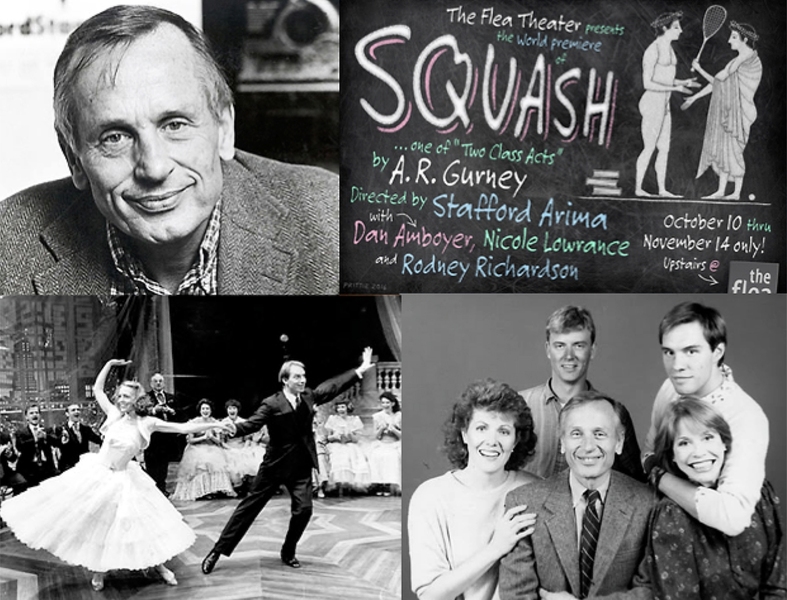A.R. "Pete" Gurney Jr., an internationally acclaimed playwright and author who served on the MIT faculty for 36 years, died June 13 at his home in New York City. He was 86.
The author of such well-known plays as “The Middle Ages,” “The Dining Room,” and “The Cocktail Hour,” Gurney was named a finalist for the 1990 Pulitzer Prize for Drama for his play "Love Letters." His Broadway debut, in 1987, was with "Sweet Sue" starring Mary Tyler Moore. He was also the author of three novels. A complete list of Gurney's works is available on his website.
Gurney joined the faculty of the Department of Humanities — a predecessor to the MIT School of Humanities, Arts, and Social Sciences (SHASS) — in 1960. He earned tenure in 1968, was promoted to full professor in 1972, and retired in 1996, moving to New York City to focus more completely on the theater.
In 1994, MIT honored Gurney with the McDermott Award for his contribution to the arts. Among many other honors and awards, he was named to the American Academy of Arts and Letters in 2006.
Deborah Fitzgerald, the Cutten Professor of the History of Technology, and a former dean of SHASS, recalls Gurney as a "legend at the Institute. We have had many enormously distinguished faculty in SHASS over the years," she said, "and he was one of the most remarkable from the humanities and arts."
"Gurney was a wonderful mentor to young faculty in the MIT Humanities and an outstanding teacher," says Philip Khoury, associate provost and the Ford International Professor of History. "His many students continue to remember him with fondness and appreciation. One of America’s leading playwrights, Pete Gurney was forever conscious of what MIT meant for his professional career. And he contributed enormously to making the MIT humanities so vital.”
"I remember Gurney sitting in on an American literature class when I was an undergraduate at MIT," recalls Duane Boning, now the Clarence J. LeBel Professor in Electrical Engineering and Computer Science. "He wasn't the lecturer — Gurney was there out of love for the subject, and to hear what young students were thinking about these books. I thought that was pretty cool. Even when he wasn't teaching, he was inspiring."
In an extensive tribute to the life and works of A.R. Gurney, The New York Times reports on the driving force of his writing: “'What seems to obsess me,' he once said, 'is the contrast between the world and the values I was immersed in when I was young, and the nature of the contemporary world.' Early on, he said, 'I sensed the comforts of civilization — but also its discontents, what you give up. The emotions are carefully trained, ultimately honed, tamped down.' He devoted his life to bringing those feelings to the surface."






